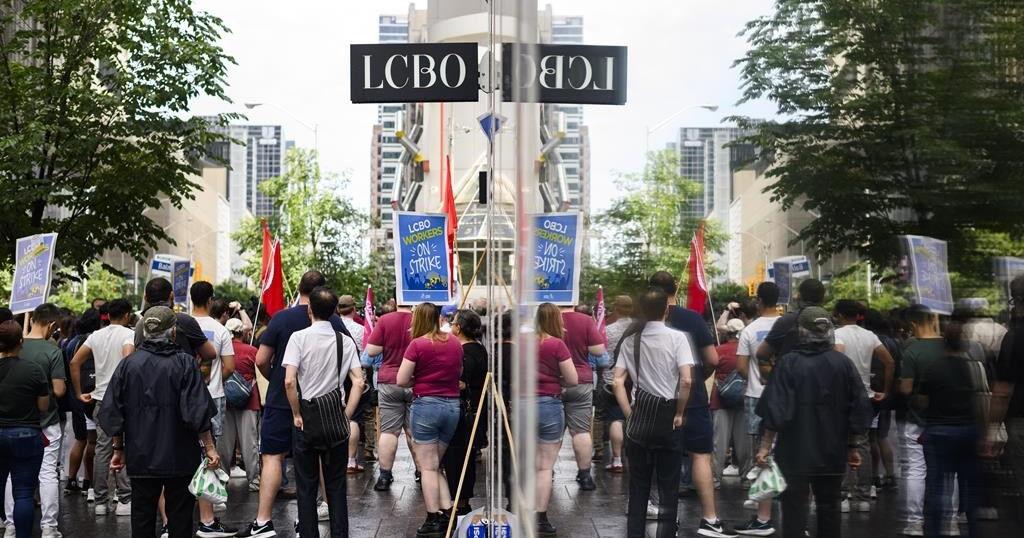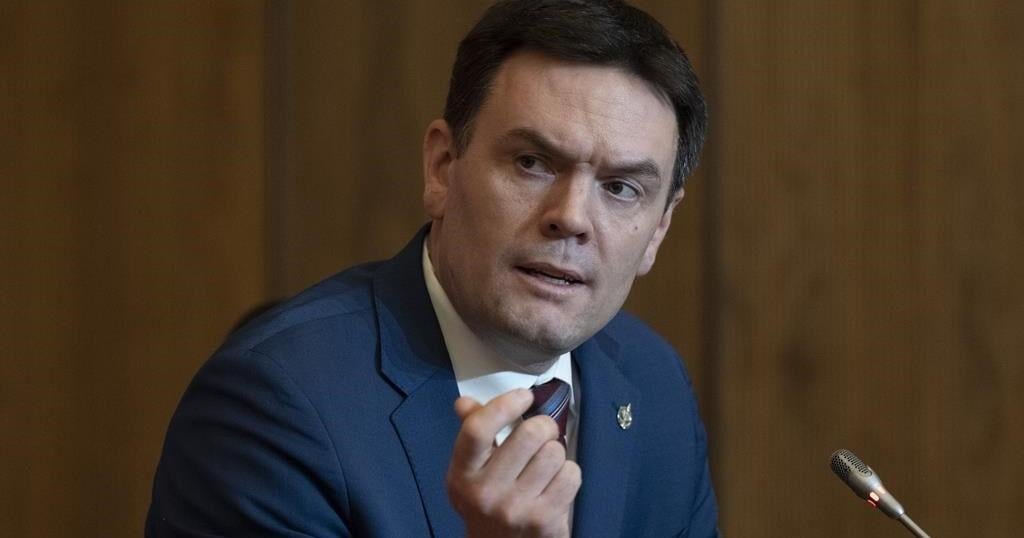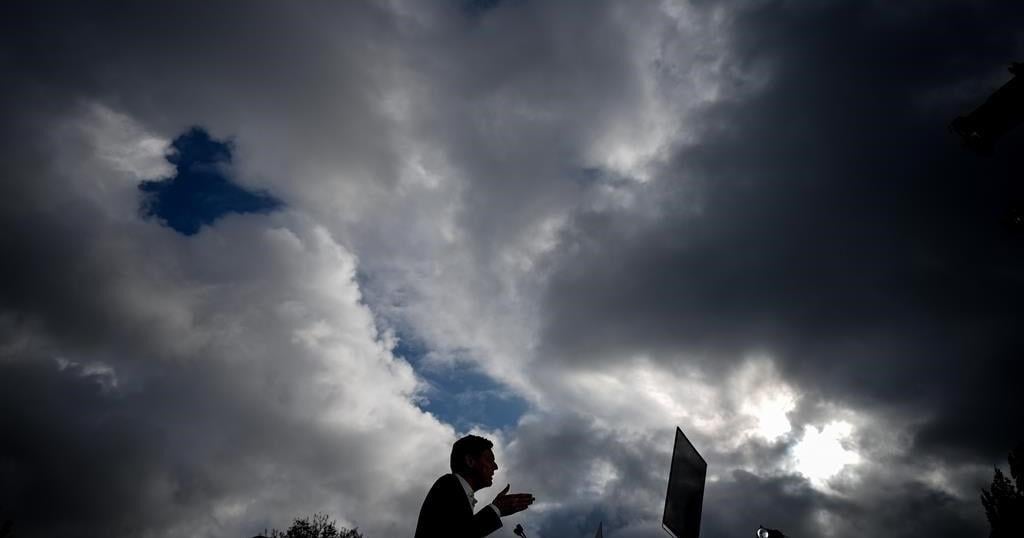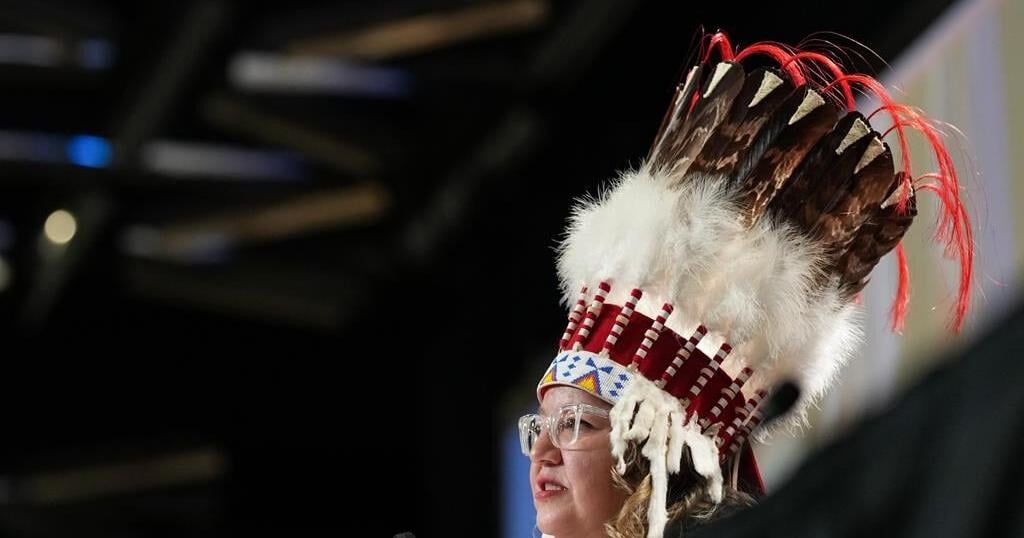TORONTO – Questions surrounding the end of a two-week-long strike at Ontario’s main liquor retailer appeared to be resolved for good on Saturday after the Liquor Control Board of Ontario announced a deal to end the walkout by about 10,000 staff was back on.
Word the strike would end first came on Friday when the LCBO and Ontario Public Service Employees Union first announced they had reached a tentative deal, but the resolution was short-lived. Both sides were accusing one another of bad-faith bargaining within hours of the announcement and the strike was set to drag on.
The LCBO, however, issued a statement on Saturday saying both sides had signed off on the deal and reopening plans were back underway.
“We look forward to welcoming our 10,000 unionized employees back to work on Monday and opening our stores to shoppers on Tuesday,” the statement read.
The timeline is the same one the LCBO unveiled on Friday before the public wrangling between the two sides.
Mere hours after the agreement was announced, OPSEU said the strike would continue after the LCBO refused to sign a return-to-work protocol.
The retailer shot back immediately, saying the union had introduced new monetary demands and the employer would file an unfair labour practice complaint.
“To introduce a new set of demands after reaching a tentative agreement amounts to bad faith bargaining,” the liquor retailer said in a statement yesterday.
OPSEU president JP Hornick disputed that the union had “new monetary demands,” but said part of their return-to-work proposals included seeking to have striking workers compensated.
“There’s a number of days for which they’ve been out, so they should be made whole for that time, because as we know, this strike was driven by an agenda that was well beyond just this table,” Hornick said.
Saturday’s statement from the LCBO said the return-to-work protocol signed by both parties does not include any “new monetary items.”
OPSEU released a statement of its own on Saturday calling the tentative agreement “a win for workers and Ontarians” and confirming a vote to ratify it will take place this weekend.
“This tentative deal protects good jobs in every community and the public revenues generated by the LCBO,” OPSEU bargaining team chair Colleen MacLeod said in the statement.
The tentative settlement published by the LCBO on Friday includes an eight per cent wage increase over three years, the conversion of about 1,000 casual employees to permanent part-time positions and no store closures during the term of the agreement.
“This is a good deal for workers and the people of Ontario,” said Finance Minister Peter Bethlenfalvy in a social media post Saturday morning.
Labour Minister David Piccini said he was pleased with the news.
“The best deals are always done at the bargaining table,” he wrote on social media.
OPSEU had said they believed Premier Doug Ford’s plan to expand alcohol sales to convenience and grocery stores would threaten union jobs and the public revenue the LCBO provides to the province.
Ford has sped up those plans since the strike began on July 5, allowing grocery stores already licensed to sell beer and wine to also sell ready-to-drink cocktail beverages as of Thursday. The initial launch for that step was set for Aug. 1.
The two-week strike had closed LCBO stores and disrupted alcohol sales for various restaurants and venues across the province, with some owners expressing worry as their alcohol supplies dwindled.
In a statement on Friday, industry group Restaurants Canada congratulated the LCBO and OPSEU on reaching the tentative deal, noting roughly 14,000 locations in the province’s food-service industry rely on alcohol sales for their revenue.
“Our operators are breathing a sigh of relief,” said Kelly Higginson, president and CEO of Restaurants Canada. “The past few weeks have been extremely challenging during this critical time of year. The support of our industry by the Ford government during this strike is appreciated.”
The Tourism Industry Association of Ontario also welcomed the tentative agreement after it had called for an end to the strike earlier this week, citing its impact on tourism and hospitality businesses.
“Our collective attention must now focus on the work needed to return to regular operations as soon as possible to ensure the critical summer season can bounce back,” association president and CEO Andrew Siegwart wrote in an emailed statement.
In its press release on Saturday, OPSEU emphasized it will continue standing up for the LCBO and its workers, focusing on the retailer’s long-term viability.
“The workers have made it clear to Ontarians that Doug Ford’s alcohol-everywhere plan directly threatened jobs and public revenues,” MacLeod said in the OPSEU statement. “While this round of bargaining isn’t over until the deal is ratified, I’m incredibly proud of the workers and the stand they’ve taken.”
This report by The Canadian Press was first published July 20, 2024.
— With files from Allison Jones and Sharif Hassan
























